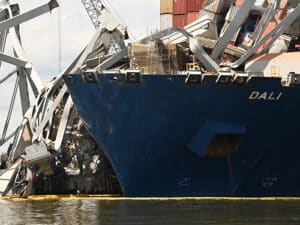
WinGD and ExxonMobil put their smarts together
Written by Nick Blenkey
Winterthur Gas & Diesel (WinGD) and ExxonMobil are collaborating to integrate WinGD’s Integrated Digital Expert (WiDE) predictive maintenance technology and the Mobil Serv cylinder condition monitoring service. They say that this will enable engine optimization to enhance reliability and reduce maintenance costs and while insights from the collaboration will be leveraged to develop next-generation engines and lubrication solutions.
With the impending IMO 2020 sulfur cap creating new operational challenges for the marine industry, gaining insights into how a ship’s engine is functioning is more important than ever to ensure safe and efficient engine operation.
“Uniting our next generation cylinder condition monitoring service with WinGD’s data collection and analytics tools creates unrivaled insights into vessel operations,” said Steve Walker, Global Marine Equipment Builder Manager, ExxonMobil. “This will give peace of mind to shipowners during the transition to compliant solutions.”
“By combining the output from WinGD’s Integrated Digital Expert with ExxonMobil’s Mobil Serv cylinder condition monitoring lubricant analysis, we create an enhanced, customized, proactive maintenance program,” said Rolf Stiefel, Vice President of Sales and Marketing at WinGD. “Combining these innovations will help ship owners reduce unplanned stoppages, save costs through engine performance optimisation and extend engine overhaul intervals.”
“This cooperation underlines the operational benefits and savings available by adopting smart vessel technology during a time of unprecedented change,” said Pamela Skaufel, Director, Aviation and Marine Lubricants, ExxonMobil. “The integration of these state-of-the-art systems is at the heart of our long-standing and continued collaboration with WinGD to offer vessel operators an invaluable advantage, now and into the future.”
Mobil Serv cylinder condition monitoring can also help vessel operators ensure IMO compliance by measuring the sulfur content of marine fuel throughout the fueling system and as it enters the engine. This is achieved using the onboard test unit, which uses X-ray fluorescence technology to analyze the fuel’s formulation, compliant to ISO 8754 standard.




